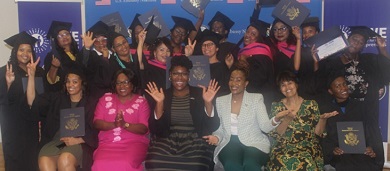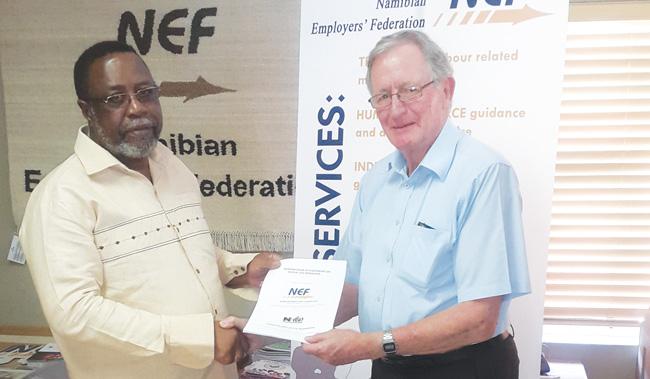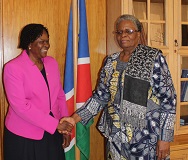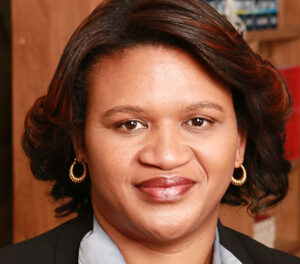
50 women from across the country graduate from entrepreneurship programme

Fifty women from across the country graduated from an entrepreneurship programme that provides women with the tools needed to create and grow their own businesses, raise capital, and effectively network with other successful business owners.
The graduation ceremony which was held this week for the Academy for Women Entrepreneurs (AWE), was officiated by the U.S. Embassy in Namibia, Public Affairs Officer, Tiffany Miller.
Regional Councilor of the !Nami#nüs Constituency, Suzan Ndjaleka, spoke on behalf of the local government at the ceremony attended by representatives from the private sector.
The principal ceremony was held and streamed in Lüderitz, while other cohorts held their ceremonies in Walvis Bay and Ongwediva.
The AWE programme was officially launched in Namibia in November 2020, and to date, approximately 70 women have graduated from the five month long training course. Participants were selected from the !Karas, Erongo, Khomas, Ohangwena, and Oshana regions.
“When women are successful, communities prosper, countries thrive, and the world becomes a safer and more stable place for us all. Having successfully completed this course, you are empowered with the resources and knowledge to expand your businesses,” said Tiffany Miller during the graduation ceremony at the Lüderitz Nest Hotel.
Funded by the U.S. Embassy and implemented with support from SME Compete and Glowdom Namibia, the Academy for Women Entrepreneurs is a global programme run by the U.S. Department of State that currently empowers women entrepreneurs in more than 50 countries.
The programme was developed to support the White House-led Women’s Global Development and Prosperity (W-GDP) Initiative, which is designed to support women worldwide in fulfilling their economic potential.












































